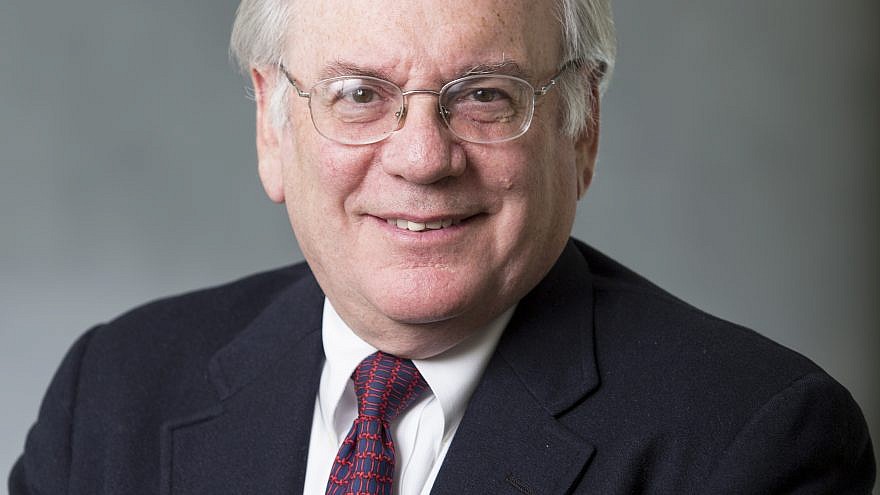In January, the New York-based Israel Cancer Research Fund appointed a new national executive director: Dr. Mark Israel. A renowned pediatric oncologist and leading national figure in cancer research, he previously served as the director of Dartmouth College’s National Cancer Institute-designated Comprehensive Cancer Center—the Norris Cotton Cancer Center—from 2001 until 2016.
For the last 12 years, Israel (yes, his name goes hand in hand with his position) has worked with ICRF—the largest nonprofit organization dedicated solely to funding cancer research in Israel—on a volunteer basis, evaluating research proposals for Israeli cancer scientists.
JNS recently caught up with him to find out how he’s adjusting in the new role, what separates Israel’s researchers from the pack, and where he escapes for peace and quiet when he’s not working to rid the world of cancer.
Q: What are some of the most exciting developments in the world of contemporary cancer research?
A: I think the major thrusts in which we’re looking for leapfrog advances are in the areas of targeted therapy and immunotherapy. Targeted therapy really has to do with developing drugs that specifically inhibit molecules altered in the process of the cell becoming malignant. Immunotherapy really has to do with understanding the ways in which tumor cells have been able to hide themselves from the normal immune system that recognizes things as foreign—things like bacteria viruses but also tumor cells. Recent advances have allowed for drugs to be developed that are helping us understand how tumor cells manage to evade the immune system’s ability to recognize and destroy foreign entities.
Q: Why take on this new challenge heading up the ICRF at this point in your career?
A: I think we are living in a time when a good deal of cancer can be effectively addressed as we continue to develop technology that allows us to approach things on a molecular basis. Israeli cancer-research activity is innovative, intensive and focused, but also very much resource-deprived. I think there’s an opportunity for ICRF to enhance it and provide the tools by which Israeli cancer science can really take off, which I believe will have a huge impact worldwide. That’s why this opportunity attracted me.
Q: How’s it going so far?
A: I’m still getting oriented. I’m excited by the quality of the people who are engaged with [the organization] and excited by the enthusiasm people in the greater, outside community have for supporting [it]. I feel very good about it all.
Q: You’ve worked extensively with cancer researchers in the United States, but you also spent 12 years on ICRF’s volunteer scientific review panel evaluating research grant proposals. What are some of the singular opportunities you see in the scientific community in Israel?
A: The really exciting strength of cancer science in Israel is the work being done to understand fundamental drivers of cancer. That focus on understanding cellular alterations will create many opportunities for developments in targeted therapy and immunotherapy. Further developments on small molecule drugs and a variety of other therapeutic strategies depend almost completely on making sense of how cancer cells differ from normal cells.
Q: In your opinion, what sets Israeli researchers apart?
A: I think what sets Israeli researchers apart is their ability to deliver results. Think of channeling the spirit of innovation and drive that helped establish the State of Israel. Why not make cancer a conquerable foe?
Q: ICRF has partnered with organizations like City of Hope to encourage collaboration between Israeli cancer researchers and their international counterparts. Is that something you’d like to continue to push? Why is that important?
A: I want to see a change in emphasis of ICRF’s historical form of financial support, providing grants to Israeli researchers. They are resource-inhibited. We want to directly address that. But we want to do a dozen other things that will enhance Israeli cancer science. That will take the form of enhanced collaboration, more symposia, more communication with international counterparts, and we’re hoping to move towards equipment grants to get Israeli researchers the latest equipment. Nowadays, instrumentation is changing on a yearly, even monthly basis. We think there are many ways we can advance Israeli science and increase the value of their efforts for everyone in the world.
Q: When you’re not trying to rid the world of cancer, what do you do for fun?
A: I like to spend time with my four grandchildren. I like to play golf. I like to sail. I like to spend time on the ocean. I also travel a lot for work internationally, which is fun.
Q: Got a favorite travel destination?
A: I like hiding away in Kennebunkport, Maine, where we have a house. I find it very relaxing.


























